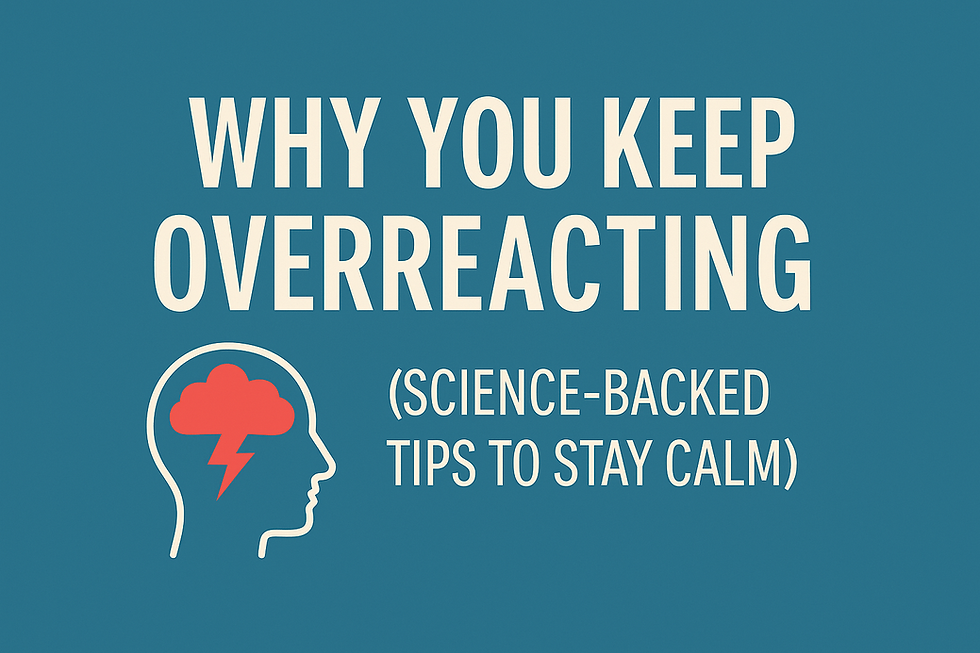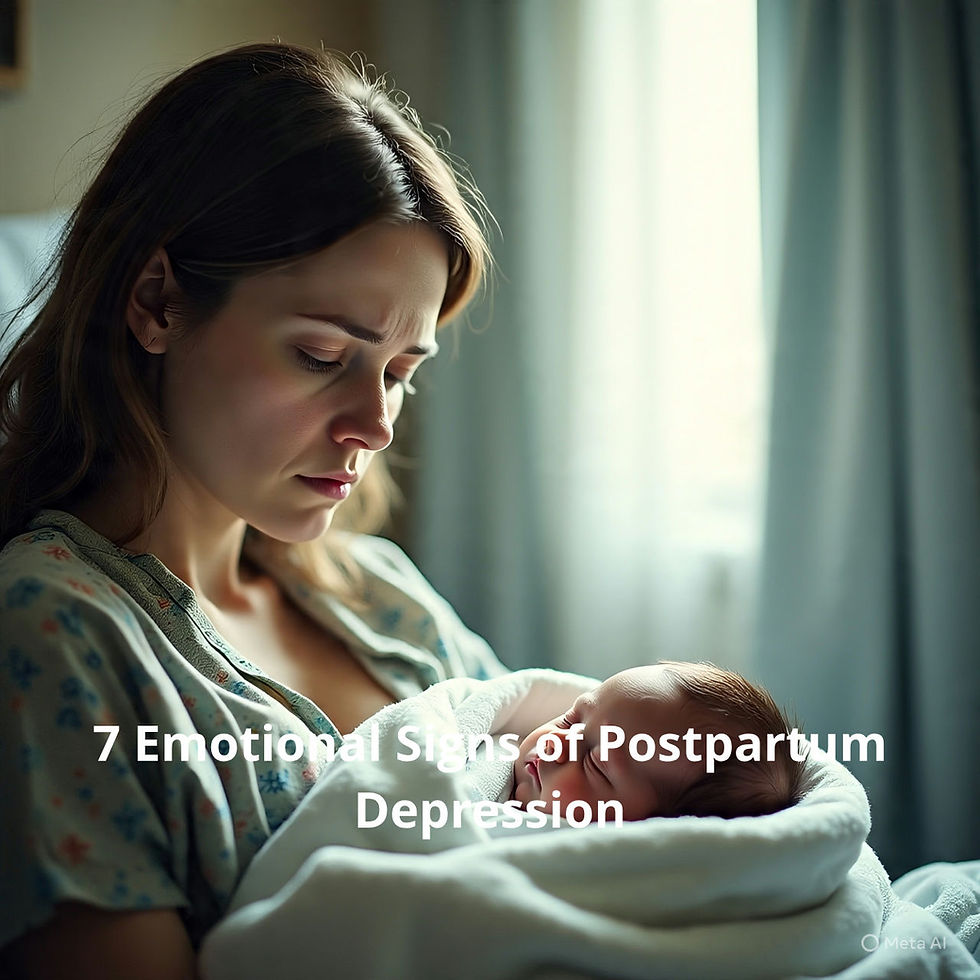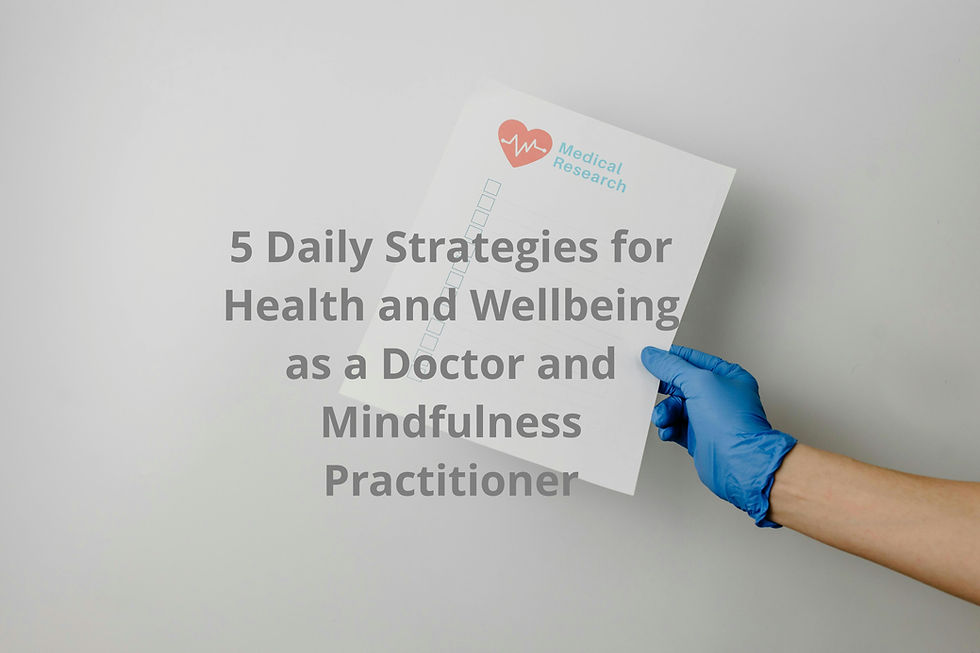
Mental Health: When to Seek Help?
- drsarojsalelkar
- Aug 15, 2025
- 3 min read
That ache in your chest. The nights spent staring at the ceiling, wondering what’s wrong. The guilt you often felt for not being “on” for your family or at work. Was there a time you cried yourself to sleep or the time you refused to get out of bed because life was just too painful?
It’s a silent, heavy feeling we all carry at some point. You’ve tried self-care, breathing exercises, and even bought a new journal, yet the feeling lingers. We all have our share of bad days or even bad weeks, but when is it that we need to move from self-help to seeking professional support?
According to the National Institutes of Health (NIH), a persistence of symptoms beyond two weeks is an indicator to seek professional support. However, even a single thought of self-harm or suicidal ideation warrants professional mental health help immediately. Your life matters, and you are not a burden.
Let’s take a closer look at the warning signs that tell us it’s time to seek help.
Warning Signs You Can’t Ignore
* You Feel Overwhelmed Most of the Time: If daily tasks you once handled with ease now feel like climbing Mount Everest, it can signal emotional burnout, depression, or anxiety that needs professional intervention.
* Your Mood Swings Are Unpredictable: Going from calm to furious, or happy to hopeless in minutes, can be more than just stress. It might indicate deeper mood regulation issues, possibly linked to anxiety disorders or depression.
* Sleep No Longer Feels Restorative: Whether you’re lying awake for hours or sleeping excessively yet waking up exhausted, disrupted sleep is a common red flag for declining mental health.
* Your Appetite Has Dramatically Changed: Overeating for comfort or barely eating at all are often signals that your mental and emotional well-being are under strain.
* You’re Withdrawing from People: If calls from friends go unanswered and social invitations feel like a burden, you might be self-isolating. This is a common coping mechanism when struggling emotionally.
* You’re Experiencing Physical Symptoms with No Clear Cause: Headaches, stomach issues, and muscle tension can all be stress responses. If your doctor rules out physical causes, it may be your mind’s way of asking for help.
* You’ve Lost Interest in What Once Brought You Joy: When hobbies, passions, and people you loved now leave you feeling numb, it’s a sign that your emotional health is struggling.
* Your Coping Mechanisms Have Become Unhealthy: Leaning more on alcohol, food, endless scrolling, or other numbing activities can mask the pain, but they never address the root cause.
* You Feel Drained, Tired, or Lethargic: This can be an effect of factors like nutritional deficiencies or other medical conditions. If these causes are ruled out by a professional, persistent lack of energy may not be laziness but a sign to see a mental health professional.
Moving Beyond Self-Care
Although some of these symptoms can be relieved in the initial stages with self-care tools like exercise or meditation, persistence beyond two weeks is a cause for concern. In these cases, self-care is just a complementary tool, not a replacement for chronic or severe mental health conditions.
The strongest thing you can do is ask for help.
Immediate Action Required: When to Seek Help Right Now
If you have had thoughts of self-harm or hopelessness—even fleeting thoughts like “it would be easier if I wasn’t here”—these are serious and require immediate professional support. You are not a burden. Your life matters.
If daily tasks and activities are hampered, you are unable to take care of yourself and others like you usually did, and thoughts of suicide and self-harm loom, seek help immediately.
The Benefits of Seeking Therapy
* Identifying the Underlying Cause: A professional can help you uncover the root of your struggles.
* Providing Effective Tools: Therapy offers evidence-based strategies to help you deal with situations in a way that self-care alone can’t.
* A Safe, Judgment-Free Space: A qualified professional provides a confidential and supportive environment for honest conversations.
India has a toll-free helpline, Tele MANAS (14416 or 1-800-891-4416), dedicated to mental health support in 20 regional languages. As of Feb 2025, this service has handled over 1.81 million calls since its launch in 2022. Qualified counselors, social workers, and psychiatrists can help provide one-on-one sessions and necessary treatments. Remember, therapy isn’t one-size-fits-all and needs to be tailored to individual needs.
Ignoring the signs makes recovery harder. Seeking help early is a strength, not a weakness.

If you would like help with self-care practices for emotional well-being, click here
Read my bestselling book on depression to self-discovery, The Arjuna in Me: Here
Follow me on @drsarojsalelkar on Instagram, LinkedIn, and YouTube for more insights.


